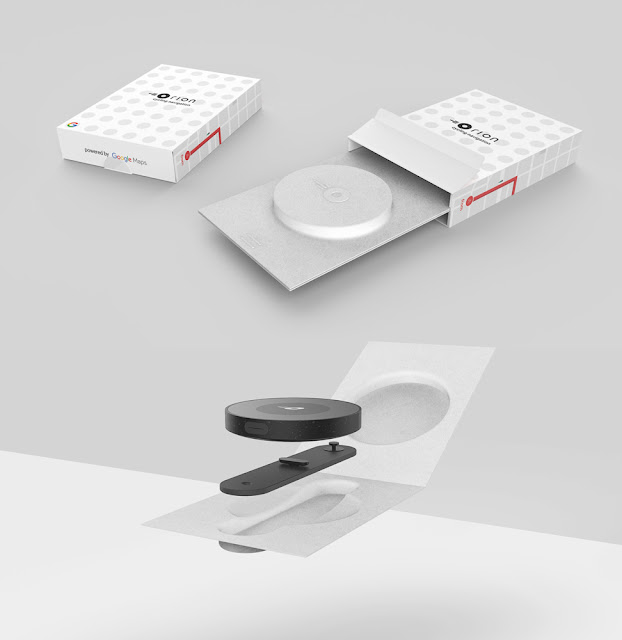Every morning, industrial designer Clément Dauchy rides his bike to work in San Francisco. Sometimes he would breeze through green light after green light, but that was rare. He’d mostly get stuck at red lights, often when while biking up one of the city’s many hills, which meant expending lots of extra energy to get started again
“It quickly became like an everyday challenge to pass all those lights without stopping, counting time on my watch and trying to get the right speed,” Dauchy says. “I believed I was not alone in this situation so I thought about a cycling navigation device what would help you to anticipate, manage your effort, and make your ride around the city more efficient.”
Enter Orion, a conceptual navigation tool for cyclists.
The device, which features an e-paper screen and clips onto a handlebar mount, connects to Google Maps via Bluetooth and uses that data to tell riders just a few choice pieces of information, which helps with safety (it’s not wise to fuss with a phone while riding in a city) and ease of use.
[Photo: courtesy Clement Dauchy]
“The amount of data you give to the cyclist must be chosen precisely in order to make it useful, easy and very quick to read while riding,” Dauchy says.
A light bar points the direction you should go, just like a compass. It also communicates the distance until the next traffic signal, if the signal is red or green, and how long it will be that color. Lastly, it also tells riders how long and how steep any particular hill is so they can pace themselves.
“People have access to so much data today about everything thanks to many kinds of devices,” Dauchy says. “But do we need and do we use all these data? Today, I think it is important and worthwhile to spend time to research what is essential for the users and determinate precisely what will bring them benefits and help them to meet their objectives.”
Orion is a purely conceptual project and Dauchy doesn’t have plans to develop it any further (this was a personal project; his full-time job is at Astro Studios). But it’s another example of the movement towards a post-screen future–one where devices offer less, but more relevant, information.


Comments
Post a Comment